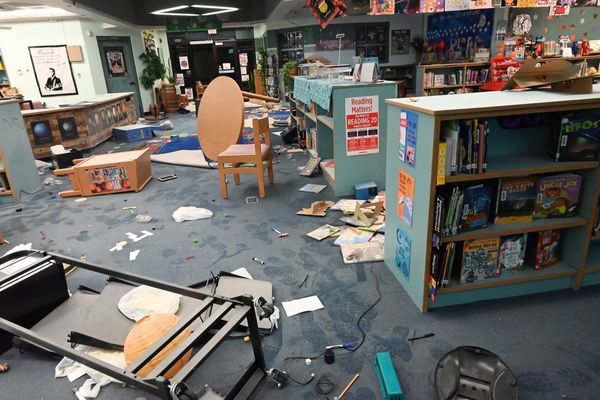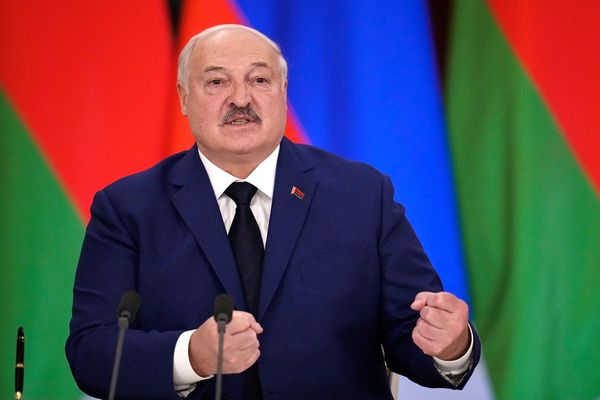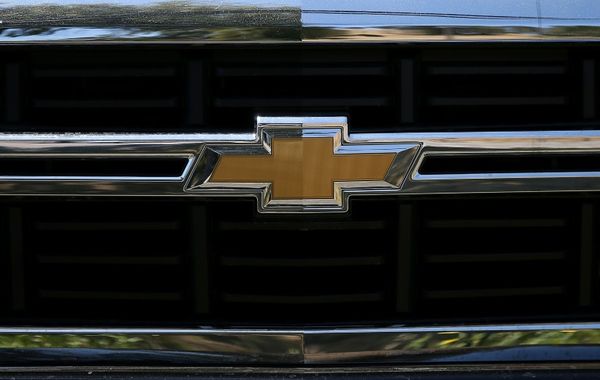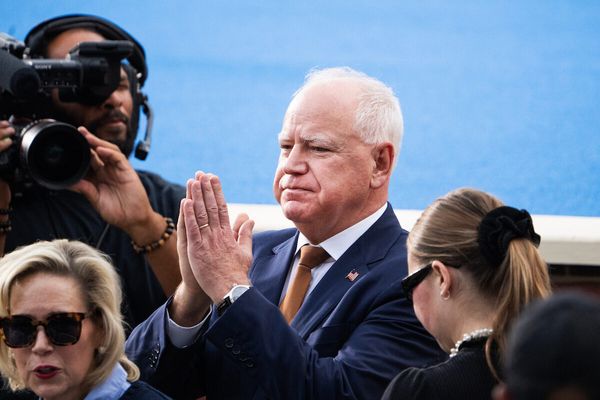As a new NASA astronaut in 1996, Mike Massimino participated in a training flight in Texas. He served as co-pilot while James Kelly, an experienced test-pilot astronaut, was in command.
Just before takeoff on the night flight, the air traffic controller radioed the crew to reset the aircraft's heading. Massimino complied.
Soon after takeoff, the airplane nearly collided with another jet because Kelly was following the old heading. Only when they reviewed the near miss did Kelly learn that Massimino had switched the heading.
"You knew that we changed the heading but didn't say anything?" Kelly asked his co-pilot.
After the flight, Kelly said that he had missed the heading change, which almost got them killed. But he also counseled his friend that by not speaking up, Massimino also almost got them killed.
Massimino learned his lesson: You must speak up even when you're the rookie working with a seasoned pro.
"Speaking up is important not only when you have a safety concern but also when you have an idea," said Massimino, a NASA astronaut for 18 years who flew in space twice. "Leaders have to encourage even the newest employees to make suggestions. When they do, be ready to listen to them. Don't squash their ideas."
Massimino: Don't Take The Easy Path
For Massimino, 61, becoming an astronaut didn't come easily. He faced repeated rejection before gaining admission to the NASA program, partly due to poor eyesight. He's even afraid of heights.
"I don't like looking over the side of a building at all," he said. "I'm not a thrill-seeker either."
Yet he was part of the last crew to service the Hubble Space Telescope during the Space Shuttle Atlantis mission in 2009. He and his crewmates completed numerous successful spacewalks to install new parts in the telescope.
His spacewalks reportedly inspired George Clooney's role in the hit movie "Gravity." He also landed a recurring role as himself on the CBS comedy "The Big Bang Theory" and wrote a newly released memoir, "Moonshot."
Keep Plugging Away To Gain Knowledge, Like Massimino
Massimino has impeccable academic credentials, including two Master of Science degrees and a Ph.D. in mechanical engineering from the Massachusetts Institute of Technology. But again, they didn't come easily.
"I failed my qualifying exam for my Ph.D.," he said.
"You're able to take the test a second time in six months," Massimino said his advisor told him. "But you may not want to spend another six months studying for it if it results in another failure."
Massimino refused to give up. Instead, he realized that he needed to improve his performance on the oral part of the exam. So he enlisted friends to help him practice responding to questions.
"I had to really work hard," he said.
As Massimino persevered, he recalled a comment from his advisor: "If you can learn to live with the indignities in life, you can go far in life."
"His point was if you can get kicked (down) and get back up, you can go far," Massimino said. "You need to be willing to look dumb, ask for help and accept that help."
Vow To Keep A Mission Alive After Setbacks
Massimino continued to adopt a never-quit mindset as an astronaut. Adversity tested his fortitude.
After the Space Shuttle Columbia disaster in 2003 killed seven astronauts, Massimino's next scheduled Hubble flight was initially canceled.
"We came together as a team after that tragedy," he said. "I'm proud of how we recovered from that accident."
Rather than point fingers, Massimino and his colleagues vowed to carry on. "It took away seven of our friends," they said. "We won't let it take away our mission." Their collective determination to fly again forged an even stronger bond.
"If you feel like it's a shared responsibility and we're all in this together, it takes the pressure off and you don't splinter as a team," he said. "Once you start pointing fingers, you can't recover from that."
Level With Your Team Rather Than Assign Blame
To underscore the danger of blaming an individual for a team's failure, Massimino cites the 1986 World Series. The Boston Red Sox infamously lost Game 6 on Bill Buckner's fielding error. Decades later, some people still pin all the blame on Buckner for the loss.
"But there were so many others who played a role," Massimino said. "Calvin Schiraldi gave up hits to Gary Carter and Kevin Mitchell (and Ray Knight). Then another pitcher, Bob Stanley, threw a wild pitch that tied the score. The damage was already done when Mookie Wilson hit that grounder to Buckner."
Massimino notes that anyone can make mistakes, even the most skilled teammates. The key is creating a culture where everyone seeks to learn from each other in an open, nonjudgmental environment.
"With us, there was never any blame," he said. "You stick together as a team, not only when you're winning but also when things fail."
To perform at your best, it helps to prepare the right way. There's an even greater need for a steely, clearheaded mindset when the stakes are high and the team is counting on you to deliver.
In the lead-up to his NASA missions, Massimino recalls the constant spacewalk simulations and safety drills.
"In the six months before a flight, it got really intense," he said. "We'd practice, practice, practice our spacewalks. Then days before the launch, when we'd get into quarantine, it's time to be confident after going through all the training. So you can relax a bit and spend time with your loved ones."
Avoid Rushing Into A Second Mistake With '30-Second Rule'
Even with meticulous preparation and reliable teammates, mistakes happen. And they can endanger the crew.
Massimino says his NASA training taught him to share any mistakes "with an open heart." Hiding them, by contrast, severs trust.
"The only thing you know with absolute certainty is you will make mistakes," he said. When they occur, he suggests applying "the 30-second rule" to lament what you did wrong.
"Give yourself 30 seconds to beat yourself up," he said. "Then you move on."
The worst response, Massimino says, is to compound your mistake by making another one. That can occur if you're too dismayed or disgusted at yourself for your initial blunder.
He cites "Hoot's Law," named after Robert "Hoot" Gibson, a former astronaut: No matter what mistake you made, you can always make things worse.
"If you rush to deal with the first mistake, you can cause Problem B," Massimino said. "It's better to slow down and get a second pair of eyes" to take corrective action.
The ability to speak and listen well helps you earn trust and discuss mistakes forthrightly with others. If you stammer or adopt bureaucratic language, you risk coming across as less authentic.
With his genial personality, Massimino builds rapport easily with a wide range of people.
"He's very genuine," said Drew Feustel, a NASA astronaut who has known Massimino for more than 23 years. "He speaks from the heart. And he's comfortable talking to people in any social or technical environment. When you talk to him, he's interested in you — and that creates opportunities to share ideas and information."
Mike Massimino's Keys:
- NASA astronaut who flew in space twice.
- Overcame: A series of obstacles, including poor eyesight, to become a NASA astronaut.
- Lesson: "You stick together as a team, not only when you're winning but also when things fail."







